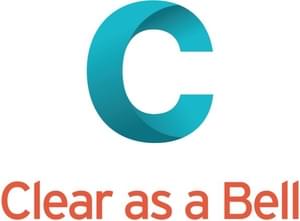A short guide from someone who's done it more than once
Expect the unexpected. It’s not ‘just’ fitting a new function into a (probably) new structure the way you would, say, adding a new income stream or service. Akin to adding a policy department when you have been purely operational for example, the point of an insight team is to change the way everyone thinks about the decisions they take – and I mean everyone. In practice it means the Insight team has to change ways of working through influence alone. You will have no line management authority over almost all the people involved.
You will have to demonstrate the value of thinking differently, of planning, gathering, analyzing and using data objectively. Engaging the hearts and minds of colleagues across, up and down the organisation is as important as setting up the systems and processes that will produce the analysis and insights you need from the right data.
You are not starting from zero
Quite often the opportunity to set up an Insight or Evaluation team has been created through a re-structure, the new structure making way for the team in an organogramme. I would nearly always recommend bringing in someone new to set it up – even if in the long run an existing staff member is to run it. This is because Insight, research and evaluation’s top priority is objectivity. That’s not easy when you have existing allegiances or even past experience of doing the job of the person you are now having to tell that the performance of that much-loved project you worked on together is poor enough to consider scrapping it.
The new Insight team must remain sensitive to a potentially fragile workforce, having been through a restructure, possibly with redundancies, having to apply back for their own jobs and a feeling of instability. It may only have been a relatively short time since the previous restructure and you may be seen as a temporary experiment that might go away if it doesn’t work out. Diplomacy will be needed with colleagues who may feel that their business acumen or management authority is being questioned. Mainly though, I’ve found real enthusiasm for a team that’s going to “make sense of our data”. That has to be your focus and the realisation that everyone has to change their ways of thinking and working will come later.
Where to start?
Concentrate your first days and weeks on combining the short term, quick wins with the longer term changes that will be needed. Find out what data people want now and for what purpose, what data they have and where the data can be found. Work out how and who can help to produce those reports as soon as possible. Then attend to what systems and processes already exist and who runs them. Find out what activity teams are planning and propose ways you could provide the data they need. Make sure colleagues understand proper lead times and budgets must be built in.
As an Insight team your priority is providing data and analysis that will enable others to take the best decisions possible for optimum performance. No matter what the politics or vested interests, your responsibility is to report (all) the results and make recommendations solely on that basis. No handy fact selection, no listening to power talk from any side or seniority, no swaying on the side of good or bad news. The results are the results are the results. Data have no opinion. You only derive your observations from what the data are telling you.
You are not alone
Build a community by finding your allies – the existing data and system teams, early adopters, the frustrated junior or senior colleague who has long spotted the opportunity to use data better - AKA the undercover geek, other research teams and data-creating groups.
An Insight function is there to enable other people to do their jobs better by making informed decisions. Ultimately you can’t do it all and as a new team (possibly just you...) it’s likely you don’t have enough people to cover everything you’d like to deliver. Focus on the most important matters first, you’ll know what they are once you’ve talked to a good number of people. Then be open and upfront about what you can achieve within different timescales and resources – be imaginative, can you outsource? Can you offer a secondment to your undercover geek? Can you start a training programme so that colleagues can start to do their own Insight or at least understand how to commission Insight well? Can you brief your audiences so they understand how to get value from qualitative as well as quantitative research?
However much you need to juggle your time and resources, you’ll know it’s worth it when the first colleague comes to you saying, “I need to take a decision on which approach to take but I’d really like to get some robust research first – can you advise me on the right research design?”.
Smile and set to.
